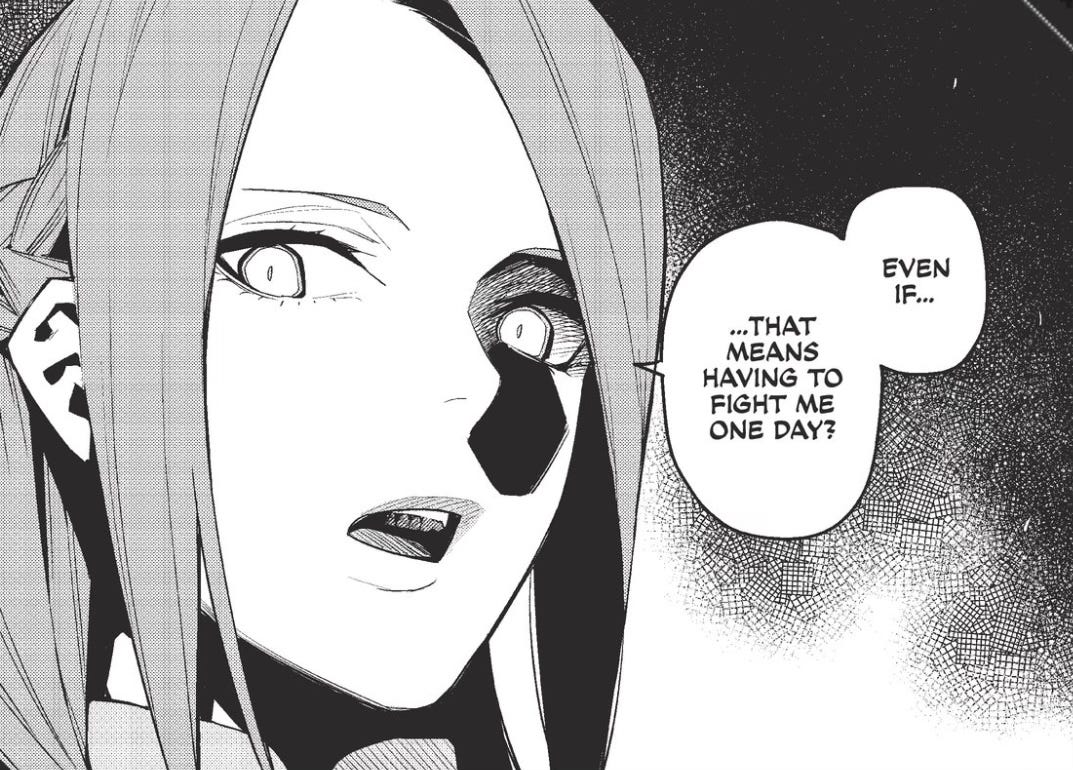Preface!
In the process of doing my “Volume 1” exploration of Go! Go! Loser Ranger!, I stumbled on numerous things I wanted to keep an eye on, not to mention me having the Power Rangers theme song stuck in my head for… ever?
Yeah so, during that process, I committed to a few more volumes of this delightful little not-really-but-still-kind-of satire and in the process, realized that one of the main takeaways from my volume 1 exploration became a much bigger talking point, one that I found pretty remarkable, and absolutely unexpected.
Which is the whole point.
Preface over.
This goes without saying, but I’m going to say it anyway: When you’re telling a story, you can literally do anything. That’s the hard part of telling a story. What happens next? And how does that inform what happens next? And how was that informed by what happened seven years ago?
It should get to the point where you’re essentially leading the reader along, almost like you’re training a dog with a treat. They’re following you to see what happens next and inevitably, they’re trying to think ahead. What might happen next, based on previous evidence?
Which leads to another difficult part. If those points of connectivity start to feel… disconnected, well then you may start to lose your reader. After all, if your protagonist just lost his job and goes home to play video games to detox, how were they ever going to know that he would suddenly take flight and soar into the atmosphere? That feels a bit disconnected. Unless that’s the vibe, like in the TV show The Curse, in which case anything—and I mean anything—is fair game.
Not everything is that obnoxious, obviously, but you get the point. Readers have to be able to follow you from one scene to another and put the pieces together. But there’s also a drawback to them being able to predict and forecast. If they know what’s going to happen next time and the next time after that, what’s keeping them reading?
Storytelling is hard, have I mentioned that?
Enter Go! Go! Loser Ranger! This is a series that does a fantastic job of keeping the pages turning, using each panel to coax the reader into the next panel. Only they take the next narrative step too, which is what we’re here to talk about. They subvert expectations. They lead you to believe one thing, only to flip that around. Lo and behold, what you thought was going to happen, what you thought was the focus, gets squashed by a bigger, and sometimes even exact opposite, component.
This can be seen in every single chapter in the first volume. At first, the primary plot point appears to be this hush-hush agreement between the Rangers and the Monsters, only for that to take a back seat to Fighter D infiltrating the Rangers, only for that to take a back seat to these Rangers that want to help the Monster, only for that to take a back seat… so on and so forth. Every chapter took the previous stakes and said, “just kidding, that’s not the real story here.”
It was so intriguing that I was genuinely worried they wouldn’t be able to keep it up. How can every single chapter continue to up the ante? Eventually there needs to be a chill just to let up a bit.
Go! Go! Loser Ranger! provides that, settling into more expected point A to point B plot points, but even in that, they continue to subvert expectations, leading you into a false sense of confidence in knowing what will happen, only to dash those expectations. For instance, when Fighter D is in a big fight, his “ally” Hibiki keeps trying to tell his backstory. That’s pretty standard behavior for manga. In the thick of the moment, draw out the tension by dropping in some backstory and adding some thematic importance to the fight or conflict.
Only it’s not so easy here, because Fighter D keeps interrupting to ask what the point is with this stupid back story. On the surface, it’s a funny jibe at this established practice, but bigger picture, it’s doing what this series continues to do: subverting expectations.
You just don’t see a ton of major expectation subversions in mainstream story telling. You see lingering questions—is Snape good or bad?—and aspects of mystery—how will Frodo get into Mordor?—but mainstream plots very rarely look to deliberately mislead or interrupt its own flow like Loser Ranger! does. But it doesn’t just do it, it does it to achieve a desired outcome.
When I talked about Hell’s Paradise, and that plausible deniability aspect, how every moment could go either way, the same applied. There is such a benefit to keeping your reader off guard, or unsure of themselves. It makes them keep reading. They have to know what happens.
Loser Ranger! doesn’t do the exact same thing, with the mastering of the moment of Hell’s Paradise. In Hell’s Paradise, anything could happen. In Loser Ranger!, you’re led to believe something, only for them to flip it, or one-up it. But it essentially achieves the same thing—whatever you’re expecting to happen may or may not, but whatever happens still feels grounded and realistic.
I have this writing theory (another one, I know) that I call the line of credit theory. When you first start reading a story by a new author, that author has zero credit with you. You owe them nothing. Everything hinges on the story. If they don’t hook you right away, you can cash out and leave, nothing gained, nothing lost.
That said, the further a reader reads into a story, the further the author’s line of credit. The further a reader reads in, the more it’ll take to get them to cash out and leave. They’re getting more invested, more interested, they have more to lose by quitting a story midway through, or three-quarters of the way through, then if the first page loses them and they walk away then and there.
This is what Loser Ranger! cashes in on. They build such a hefty line of credit by building a first volume full of pure intrigue, that even when that intrigue lets off, now the reader has this extended line of credit, we’re invested in more ways than we thought, and it’s so much harder to walk away from the series.
I spent the entire first volume of Loser Ranger! figuring out what the story was even about, such that when I finally got there, I felt accomplished. Like I’d leveled up within the narrative. And every time a new knot was added to this plot, I felt the same. My line of credit was extending, it was getting harder and harder to cash out.
Barring a colossal narrative collapse, there’s no turning back now. This series is the living definition of propelling readers forward.
Hey, creative writers: Look at your opening sentences, chapters, etc. What’s keeping the reader going? Look for intrigue or character stakes, a burning question or a dire need. If you can’t find one, add it. Build that credit early.
Hey, fans of Go! Go! Loser Ranger!: What has been your favorite misdirection? What surprised you the most?








Love the voiceover. Thanks for doing that !